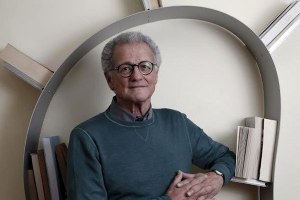Happy Birthday Paolo Fabbri!
When you must talk about professor Paolo Fabbri, you are seized with that “stinginess in writing” Umberto Eco ascribed to him, pardon, to Paolo from Rimini, the founder of the library in the novel The Name of the Rose, inspired by him.
But in this case, the reasons preventing writing are for sure less ‘noble’ than the ones by Professor Fabbri, who, in this regard and referring to a definition by Roland Barthes, thinks that, just as a professor, «oral character is fundamental» (see interview on Corriere della Sera).
Here, the difficulty of the writer is of a different nature: what can one write about a scholar who deals with semiotics, communication, linguistic, sociology, fine arts, cinema, poetry, philosophy, …? Who writes in different languages, edits reviews, teaches in Italian and foreign Universities, received prestigious titles and special distinctions, …?
“Immense” is the definition ‘his’ Rimini (fairly) uses in celebrating him, and the celebrations for the Professor’s 80th birthday (April 17) join those for the 400 years of the Library Gambalunga of Rimini (April 23), an anniversary which gathered a special gift, that let us (let him?) keep on playing the game of the reference “library-Paolo from Rimini”, a gift not made by Rimini to Paolo Fabbri, on the contrary by Paolo Fabbri to Rimini, to the library of his hometown: the donation of fifty precious volumes -ranging from Cinquecentine to Nineteenth Century books-, justified by his «feeling of adherence to the cultural project of the first public library in Italy» (they said in fact Paolo from Rimini was a really voracious reader, who knew by heart all the books of the library, didn’t they?)
So, failing in using words, let us simply say happy birthday to the «witty semiotician, famous for his eclectic journeys in ever new and uncommon borders in the world of sense and word” (M.C. Turchi), to the «scholar of ingenious intuitions» (P. Di Stefano), to the Professor who «takes semiotics away from its taxonomic vocation to make it face the different ways we mean» (S. Bartezzaghi) and let’s say thank you for his words, that always let us see different points of view.

